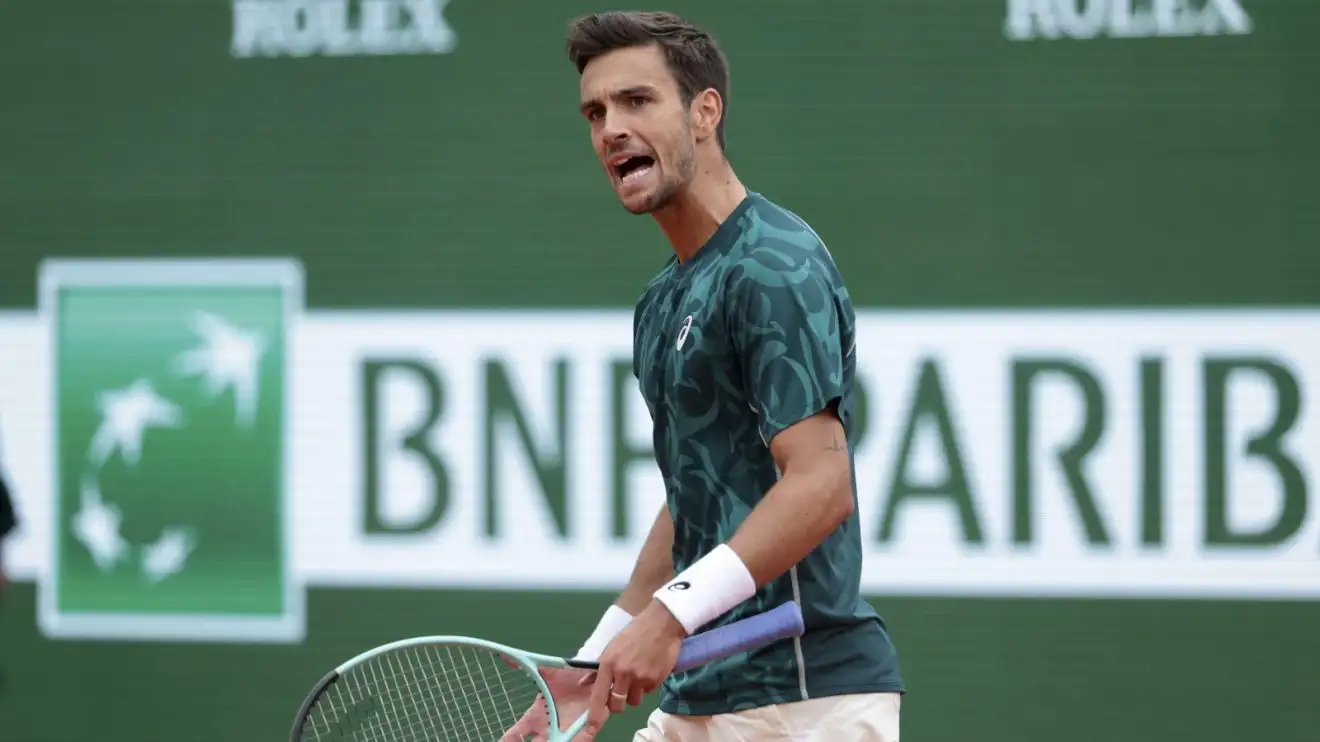
In the glamorous setting of Monte Carlo, where the clay courts gleam under the Mediterranean sun, Lorenzo Musetti’s dream run to his first Masters 1000 final was overshadowed by a heartbreaking injury that left his coach, Simone Tartarini, urging him to step away from the fight. The 23-year-old Italian, facing off against Carlos Alcaraz in a blockbuster championship match, battled valiantly despite a thigh injury that sapped his strength, ultimately falling 3-6, 6-1, 6-0. Tartarini’s candid revelation—“I told him to retire”—laid bare the physical toll of Musetti’s heroic week, while his determination to press on captivated fans and sparked debates about resilience and resolve in the face of adversity.
Musetti’s journey to the Monte Carlo final was nothing short of cinematic. The world No. 16, known for his elegant one-handed backhand and clay-court flair, had defied expectations by toppling three-time champion Stefanos Tsitsipas and outlasting Alex de Minaur in a grueling semifinal. “I always struggle to start and find a rhythm,” Musetti admitted after his 1-6, 6-4, 7-6(4) comeback against de Minaur, a match that showcased his knack for turning tides. Each victory was a testament to his growing maturity, with four of his five matches requiring three sets, including a thrilling upset over Matteo Berrettini earlier in the tournament. By the time he reached the final, Musetti had spent nearly four hours more on court than Alcaraz, a disparity that would prove costly.
The morning of the final brought an ominous sign. During warm-ups, Musetti felt a twinge in his right quadriceps, a concern Tartarini immediately flagged. “This morning, during the warm-up, Lorenzo felt discomfort in his quad,” Tartarini shared, his voice heavy with concern. The team took every precaution—taping, treatment, cautious movement—but the injury lingered like an unwelcome shadow. As the match began, Musetti showed flashes of brilliance, breaking Alcaraz early and claiming the first set 6-3 with a dazzling array of drop shots and angles. “At the beginning of the week, I was of course dreaming to be in final,” he later said, capturing the surreal joy of his breakthrough moment. The Italian contingent in the stands, spilling over from nearby borders, roared as their hometown hero held court.
But the second set marked a turning point. Musetti’s movement faltered, his right leg betraying him as Alcaraz, sensing weakness, unleashed his trademark intensity. The Spaniard stormed back 6-1, and by the third set, Musetti’s body was in full retreat. At 0-3, he called for the physio, grimacing through a massage that offered little relief. Tartarini, watching from the sidelines, made a gut-wrenching plea. “I told him to retire,” he confessed, knowing the risk of further damage. Yet Musetti, fueled by pride and the weight of a career-defining moment, refused to walk away. “He didn’t want to give up,” Tartarini added, a mix of admiration and frustration in his tone. The final set ended 6-0, with Musetti reduced to arm swings, unable to chase Alcaraz’s relentless groundstrokes.
Despite the loss, Musetti’s grit earned him a career-high No. 11 ranking and a surge of respect. “This result means a lot, but it is unexpected,” he reflected, acknowledging his injury-plagued start to 2025, where he’d won just seven of 12 matches before Monte Carlo. His past clay triumphs—a 2022 Hamburg title over Alcaraz, a 2023 upset of Novak Djokovic, and an Olympic bronze—hinted at his potential, but this final was a milestone. Alcaraz, gracious in victory, noted, “I’m disappointed for him not finishing the match in the best way, but he fought hard.” For Musetti, the road ahead is one of recovery and redemption, with Rome’s Internazionali d’Italia offering a chance to shine before his home crowd. Tartarini’s words, though, linger—a stark reminder that even warriors must know when to rest.
Leave a Reply